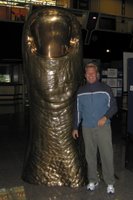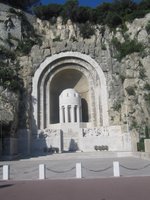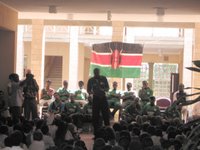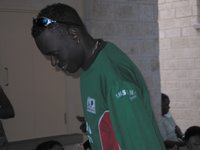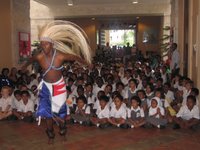This is an exert from an article in the Nation – Friday November 03, 2006 written by Thabit Mohammed
The sight of the new moon of the Islamic month of Shawaal marks the culmination of 30 days of fasting, the period known as Ramadhan. The first day of the new month is celebrated by millions of Muslims around the world.
In conformity with the Islamic basic social concept of brotherhood (Ummah), Muslims are supposed to be one entity in that period. The other spiritual pre-requisite associated with the fasting and Idd Day is Zakat-ul-fitr, which is defined as charity at the end of fasting. This brings a sense of responsibility to the contributor and feeling of security and belonging to the Muslim community.The foods are given to the less fortunate members of the Muslim society so that during Idd, they to can have something to eat. Zakat-ul-fitr is given out by the head of the family on behalf of his wife, children and dependents.
Bascially, Idd, commences on the day the new moon of the 10th Islamic month of Shawwall is sighted. The believers will chant in chorus the Takbir (God is Great) beginning with sunset prayers and ending just before the Idd prayers begin the following morning.
Idd starts in the morning prayers which should be held by a congregation preferable in an open central place in town. Prayers in a traditional mosque are to be used when it rains on that particular day. All Muslims, irrespective of gender differences or age attend thid important prayer. The wisdom behind praying together in a central place is to create a sense of solidarity.
It is strongly recommended that one slaughters an animal such as a goat, sheep, cow or even a camel. The meat should be divided into four equal parts – first portion for the owner; the second, third and fourth portions are to be shared among close relatives, neighbors, and the poor respectively.


